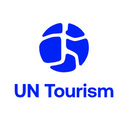UNWTO urges continued tourism investment in Africa
Speaking at the Tourism Investment Forum for Africa (INVESTOUR), UNWTO Secretary-General Taleb Rifai encouraged companies to continue investing in Africa and its growing tourism markets (Madrid, Spain, 19 January).
"Africa has been one of the fastest growing tourism regions of the last decade," said Mr. Rifai addressing Spanish investors and African tourism stakeholders at INVESTOUR. "With the right investment, tourist arrivals will continue to grow, investors will see excellent returns, jobs will be created and the entire economy will benefit."
Speakers at the Forum echoed Mr. Rifai's remarks, underscoring the importance of tourism to the continent in terms of its socio-economic development. Mr. Bello Bouba Maigari, Minister of Tourism and Leisure of Cameroon, spoke of how tourism projects across Central Africa were helping thousands to cross the poverty line. Mr. Nyamajeje Calleb Weggoro of the East African Community (EAC) highlighted Africa's many tourism assets: "we have barely scrapped the surface of our potential," he said.
Recognizing the potential of tourism in advancing developments goals, Mr. Ricardo Martínez Vázquez, Director General of Casa Africa, stressed the importance of the sector in the global cooperation agenda: "with one billion people expected to travel the world in 2012, we need to include tourism as a priority within Spanish foreign policy and cooperation actions," he said.
INVESTOUR, now in its third year, aims to increase the visibility of Africa as a tourism destination and mobilize investment for sustainable tourism projects in the region. Over 25 African countries were represented at the Forum which included a series of presentations and debates followed by business-to-business meetings between Africa tourism companies and authorities and Spanish private sector representatives. Co-organized by UNWTO, Casa Africa and the international tourism trade fair FITUR, the 2012 edition featured the Economic Community of Central African States (CEMAC) and the East African Community (EAC) as specially invited regions.
International tourism in Africa grew from 27 million international tourist arrivals in 2000 to 50 million in 2011. International tourism receipts, a vital source of foreign exchange in the region, tripled in just one decade (from US$ 10 billion in 2000 to US$ 30 billion in 2010).
Useful links:
Tourism Investment Forum for Africa 2012
About UN Tourism
The World Tourism Organization (UN Tourism) is the United Nations agency responsible for the promotion of responsible, sustainable and universally accessible tourism.
As the leading international organization in the field of tourism, UN Tourism promotes tourism as a driver of economic growth, inclusive development and environmental sustainability and offers leadership and support to the sector in advancing knowledge and tourism policies worldwide.
Our Priorities
Mainstreaming tourism in the global agenda: Advocating the value of tourism as a driver of socio-economic growth and development, its inclusion as a priority in national and international policies and the need to create a level playing field for the sector to develop and prosper.
Promoting sustainable tourism development: Supporting sustainable tourism policies and practices: policies which make optimal use of environmental resources, respect the socio-cultural authenticity of host communities and provide socio-economic benefits for all.
Fostering knowledge, education and capacity building: Supporting countries to assess and address their needs in education and training, as well as providing networks for knowledge creation and exchange.
Improving tourism competitiveness: Improving UN Tourism Members' competitiveness through knowledge creation and exchange, human resources development and the promotion of excellence in areas such as policy planning, statistics and market trends, sustainable tourism development, marketing and promotion, product development and risk and crisis management.
Advancing tourism's contribution to poverty reduction and development: Maximizing the contribution of tourism to poverty reduction and achieving the SDGs by making tourism work as a tool for development and promoting the inclusion of tourism in the development agenda.
Building partnerships: Engaging with the private sector, regional and local tourism organizations, academia and research institutions, civil society and the UN system to build a more sustainable, responsible and competitive tourism sector.
Our Structure
Members: An intergovernmental organization, UN Tourism has 160 Member States, 6 Associate Members, 2 Observers and over 500 Affiliate Members.
Organs: The General Assembly is the supreme organ of the Organization. The Executive Council take all measures, in consultation with the Secretary-General, for the implementation of the decisions and recommendations of the General Assembly and reports to the Assembly.
Secretariat: UN Tourism headquarters are based in Madrid, Spain. The Secretariat is led by the Secretary-General and organized into departments covering issues such as sustainability, education, tourism trends and marketing, sustainable development, statistics and the Tourism Satellite Account (TSA), destination management, ethics and risk and crisis management. The Technical Cooperation and Silk Road Department carries out development projects in over 100 countries worldwide, while the Regional Departments for Africa, the Americas, Asia and the Pacific, Europe and the Middle East serve as the link between UN Tourism and its 160 Member States. The Affiliate Members Department represents UN Tourism's 500 plus Affiliate members.
Rut Gómez Sobrino
Principal Media Officer
(+34) 91 567 81 60
UN Tourism
